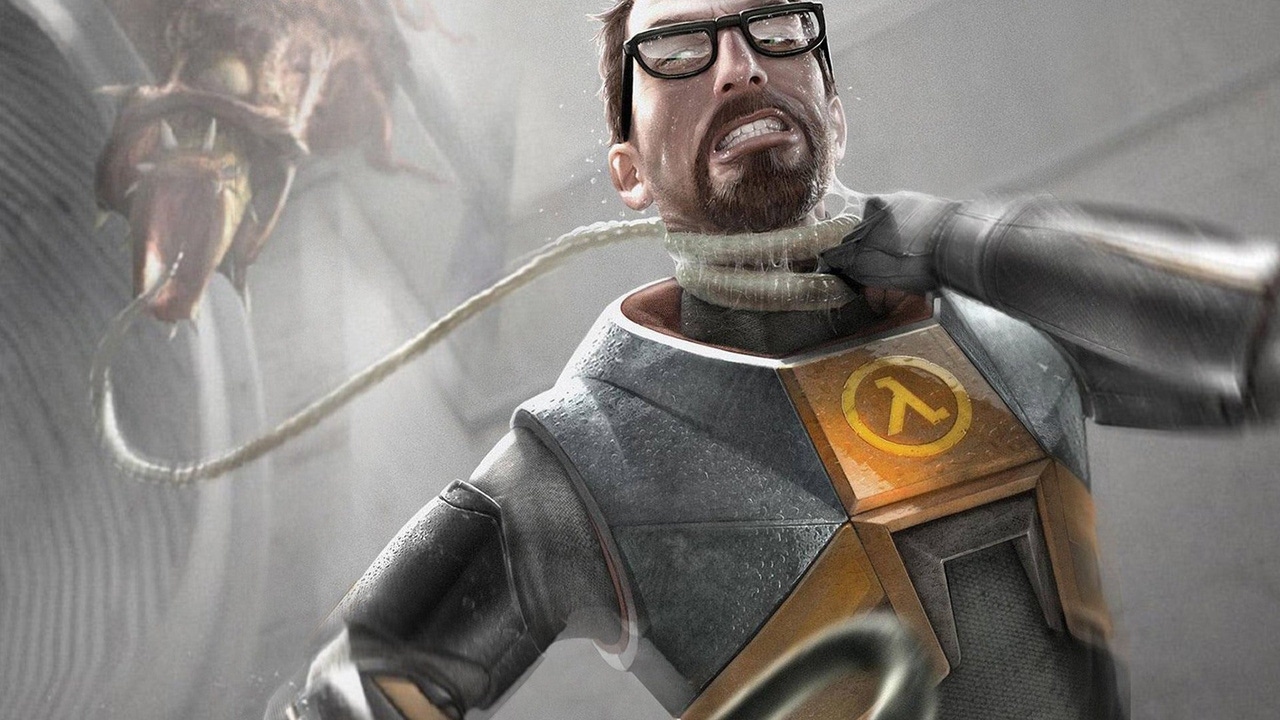Trending
Opinion: How will Project 2025 impact game developers?
The Heritage Foundation's manifesto for the possible next administration could do great harm to many, including large portions of the game development community.
Back in 2002, Vivendi had Valve on the ropes. Then one Korean-speaking intern entered the ring.

This weekend marked Half-Life 2's 20th anniversary, and NoClip released a new documentary covering the history of Valve's first-person shooter. And the reason for the game's existence can be owed in part to a Korean-speaking intern who came into the picture during a tumultuous legal battle.
In the documentary, developers at the studio discussed its 2002 lawsuit against Vivendi, which gained the retail publishing rights for Counter-Strike after acquiring Sierra. Vivendi begun licensing out the multiplayer game to cybercafes, leading to Valve filing a lawsuit after Vivendi did not agree the cybercafe fell out of its original purview.
According to COO Scott Lynch, the two companies were already in the throes of "torturous" negotiations, so the lawsuit prompted Vivendi to "go World War III." Attorney Karl Quackenbush added the Seattle court sided with Valve, which led to Vivendi hiring a new law firm that hit the studio with multiple counterclaims, including the cancellation of the companies' initial 2001 agreement and Vivendi acquiring the entire Half-Life IP and preventing Valve from doing Steam.
In Lynch's words, Vivendi's aim was clear: "'We're going to put Valve out of business, and then we'll bankrupt the two of you'" he said when describing their alleged strategy.
Valve CEO Gabe Newell flatly called it an intimidation move, one helped by Vivendi knowing Valve's financial situation. "This was really about an assertion of power. [...] They were just trying to crank up our legal costs as another way of draining [time and money] from the company."
The Valve/Vivendi lawsuit took a toll on the studio, even as developers were mostly said to be siloed off from it so they could focus on making Half-Life 2. Even so, there was concerns the game could never come out, even if development did finish: at the time, Vivendi was considerably larger, and Newell remarked that at time, it was common for publishers to "bully" developers in this way.
Both Newell and Valve were "pretty close" to going bankrupt, but things turned in Valve's favor after it asked for documents covering Vivendi's activity in Asia. The documents were all in Korean, which Newell and others speculated may have been another way to drain its resources.
But that summer, the studio employed an intern named Andrew who natively spoke the language and asked him to pore through the documents. He discovered conversations in Korean which directly implicated Vivendi in destroying documents regarding its deal with Valve "as directed"—a potentially illegal move that Quackenbush admitted to never seeing laid out quite like this in his career as a lawyer.
Valve presented those conversations of the evidence being destroyed to the judge, who subsequently sided with the studio and halted Vivendi from further contesting the suit. In the end, Valve secured ownership of Half-Life and Counter-Strike, and ended Vivendi's cybercafe deal. The ability to distribute its own games led to the creation of Steam, which launched in September 2003 and has become a major (and often controversial) fixture of the game industry.
You can learn more about Half-Life 2's development, from its physics engine to the real-world faces they used for the game's characters, in NoClip's documentary.
You May Also Like